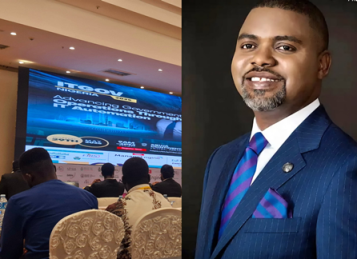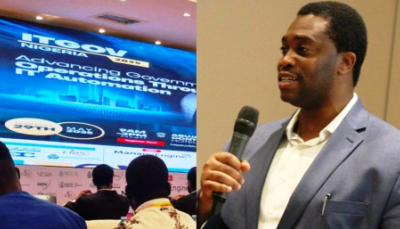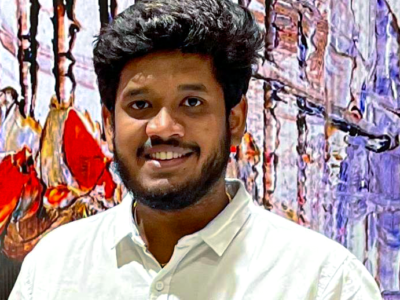Local content is a priority in ZTE
ZTE is a global brand. A telecommunications solutions vendor with Chinese origin but now a multinational ranked No. 4 in the world in terms of handset shipments. ZTE has presence in every continent and leads in the major changes within the technology ecosystem including cloud computing, integrated circuitry and the entire spectrum of technology convergence. ZTE is also a major player in Africa’s fast changing ICT sector whether through close knit partnerships with governments or with the emerging and increasingly dominant private sector players in the provisioning of extensive ICT projects including broadband initiatives and National Public Security Communication System as is the case in Nigeria. Hao Fuqiang is the Managing Director of ZTE Nigeria. In this interview with IT Edge News SEGUN ORUAME and MOSHOOD ABUBAKAR, he rates the Nigerian ICT market as green and open for business. He speaks on ZTE’s operation in Nigeria since 2002, its commitment to building local capacity and says many positive trends have happened including the Police Public Security project helping to redefine the checkmating of crimes with the aid of technology.
Can you give us a short overview of ZTE’s operations in Nigeria?
ZTE was founded in 2002 with two offices in Nigeria, Abuja and Lagos. Also we have assistant branches in Ibadan and Port Harcourt. So far we have about 200 foreign staff working in and out of Nigeria, and 700 local staff. In the past 10 years, we have accumulated up to USD1.6 billion in the Nigerian market.
How will you rate the Nigerian ICT sector since your entry?
There is no doubt the Nigerian market is a very good destination for ICT equipment vendors not only ZTE. I could say so because this market is very big and we all know that Nigeria is the biggest population in the African market with160 million people in Nigeria. We also have a lot of ICT experts in the country. For us in the ICT sector, the population is the number one point not only for ZTE but for everybody. That’s why you can see in this market, very big operators are all working very well here. ZTE is the main equipment supplier to the private operators and even government agencies.
What about telecommunication infrastructure compared to other developing countries in Africa?
In Nigeria, our main challenge in the ICT sector is power. Inadequate power is really costing a lot of money for the ICT sector. We have done projects for mobile operators. Everywhere we make use of generators and solar panels. We think it’s not happening only in Nigeria but in almost all African countries. But a very good signal for us is that the Nigerian government is paying much more attention to the energy power sector than before now.
Are you looking at local content in terms of capacity building, manpower and training of Nigerians?
As a Chinese company our strategy is not only to use Chinese people to manage this company. As a Chinese I think in a Nigerian way and that is very important. Local content has always been our priority. We do a lot of training for our local staff and the local society. We also give our local staff a lot of opportunities to practise in the field. For example, our deal with Nigeria private operators and government were done not only by Chinese alone but local staff or local partners. These projects are not a one man’s job; local hands are engaged and trained.
ZTE is ranked No 4 in terms of handset shipment. People think that ZTE is only associated with building infrastructures and public service operations for African government, could it be that you are shying away from media publicity on your performance of smart mobile devices?
ZTE started as an equipment supplier; from there we entered into the handset business. We have a very good relationship with almost all the big operators in the world. We don’t sell our handsets to individual customers. We sell our handsets to operators. Some of the Smartphones even don’t have ZTE logo on it to show that it was produced by ZTE. Sometimes we have ZTE logo on the handset but with the logo of the operators. That is why you can’t see so many ZTE handsets even though we are No 4 in the world.
What are your plans to help strengthen broadband infrastructures in Nigeria?
For internet penetration it depends on the requirements. In the US and China they have a lot of data requirements because of a lot of applications like e-banking, e-commerce, online games and the rest. They all generate a lot of requirement for data and I am very sure we are on that stage here in Nigeria. As an equipment vendor we can provide quality equipment and smartphones to support the market. People must also start to use their handset for e-banking; in China it is very popular now. For example, if I want to send money to my parents, I don’t have to go to the bank or use a PC. We can do our businesses at home or anywhere through our smartphones.
You are involved in the Police Public Security project, what is the state of the project?
I have been involved in this project since the beginning. The whole system has been well developed. As a vendor, we always got all the necessary support and documents from the government, the relevant agencies are using it now. I don’t know if you know the components of this project? This project has five components; the first one is GOTA, Global Open Trucking Architecture. It is something like the Push to Talk. The second one is the Video Surveillance subsystem that you can see in Lagos and Abuja. The third part is the Video Conferencing subsystem which is being deployed now in the 36 states pls FCT of Nigeria. The fourth part is E-Policing in Abuja and the fifth one is Coalition Emergency Response subsystem and they are working very well.
How sustainable is this project in terms of management, who manages the entire system, ZTE or another contractor of the Nigerian police?
ZTE is the contractor of this project. It is to provide the network but it is not responsible for operating and maintaining of the project. The government will determine who manages and maintain the network. Our role is to build and hand over.
What is the relationship between your Chinese employees and the Nigerian employees?
As ZTE Nigeria Limited, we have our own national union which is National Union of Postal and Telecommunication Employees (NUPTE). Some of our workers belong to that union. Our union also have regular meetings with the management in Abuja and Lagos. There have never being any issue of stopping someone from joining a union.
Is there any truth in the assertion that one of the reasons for poor quality service is because equipment suppliers are supplying low grade equipment?
It is not true. ZTE is the listed company in the stock exchange market, and world leading telecommunication solution provider, we never compromise our quality. I can assure you that the quality control method that ZTE implemented to the Nigerian market is the same as what we implemented in China and even in US or Europe, there is nothing different.
How do you foresee the telecommunication sector in the next ten years?
If you are talking about the next ten years of the IT sector, it all depends on the demand from the customers. Take the applications in your smartphones and computers; ten years ago nobody thought of video calling, there was no convergence. But now with the use of some applications, I can talk to my wife in China face to face, we can see each other. That is why you need broadband, from 2G, 3G and to even 5G today. Technology is built in line with demand. We are working on 4G and also 5G now. Like this period of network expansion plan, Nigeria must move towards this target. For us as a solution provider, we are working with the Nigerian market to meet these goals.
Is ZTE looking towards cloud computing in Nigeria, are you looking at prospecting for business in that area?
Not only ZTE or other telecommunication suppliers are all competing on cloud computing because in the near future which is already here, we will not be talking about telecommunications any more. We will be talking about cloud computing. We will be talking about everything because everything is together. Today if you saved all your information in your handset and if you lose that handset you will lose all your information. If that information is saved in the cloud and you lose your handset you can collect your information from anywhere in the world. That is cloud computing and the future is cloud computing.
What are ZTE plans, your core area of focus in your Nigeria’s operation for the next 24 months?
We are working together with both the private operator and the government agencies. We would like to continue our good services for them first. Secondly, we also would like to focus on our government business. Nigeria is a great potential market and ZTE is capable of providing different telecommunication solutions for them.
What are you putting back to the society and what is your working experience in Nigeria?
We have done a lot. We have supported so many sport games even the Nigerian national team in Dubai, Europe etc. We have also helped a lot of orphanage homes. We have donated laptops to universities like ABU. We don’t talk but now we are coming out with the media to express our own credibility and transparency. I came to Nigeria in 2011 and have been to many other African countries. As I mentioned, this country is big in terms of market potentials. It is the biggest market for ZTE in Africa.
What makes you better than other equipment suppliers?
As our strategy, we pay much attention to R&D. Even Ericsson is transferring their R&D section to China. In China, we do not only have a lot of R&D centres, we also have a lot of ICT exports. As I mentioned earlier, we are using 3G now, tomorrow we will use 4G, we are working on 5G already. We have about 8% of the 4G LTE patent right.




























